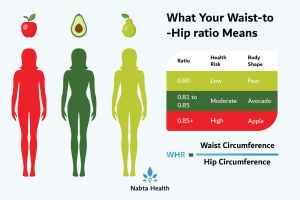Hybrid Healthcare Will Lead the Way in Empowering Women Across Emerging Markets

Nabta Health contributes to discussion on how women’s empowerment in the digital age can contribute to each of the 17 Sustainable Development Goals (SDGs)
At its heart Nabta Health is about empowering women. We do this by enabling women in the Middle East, Africa, and South Asia to take control of their health at vital stages in their lives. And in supporting women to effectively manage their health we step closer to addressing major global imbalances in women’s healthcare.
Impact of women’s empowerment on SDGs in the digital era
Impact of Women’s Empowerment on SDGs in the Digital Era, published by IGI Global in September 2022 “discusses global issues surrounding the gender gap and how women’s empowerment can contribute to each of the 17 Sustainable Development Goals”. The book examines digital’s potential as “the great equaliser”.
The 17 interlinked global SDGs are an “urgent call to action for all countries.
“They recognise that ending poverty and other deprivations must go hand-in-hand with strategies that improve health and education, reduce inequality, and spur economic growth”.
One goal, Goal 5 is specifically tied to gender equality – Achieve gender equality and empower all women and girls – and gender is listed as a key quantifiable element in more than half of the remaining 16 goals.
Covering topics including female healthcare, global citizenship, legal empowerment, digital identity, impact investing, financial inclusion and ethical leadership, the book addresses society’s “moral imperative to redesign, reshape and recalibrate our global approach towards women’s empowerment” and emphasises the urgency and “alternative pathways” required to tackle the “major challenges that fuel the global, social, and economic gap.”
Nabta Health is reimagining and revolutionising the future of female healthcare
Chapter 11 of the book, authored by Nabta, addresses the major imbalances in women’s healthcare across developing nations and emerging markets.
It looks at how the widespread poor quality and inequitable access to healthcare services, coupled with dominant cultural narratives and gender inequality, have compounded preventable reproductive health issues, infertility, and non-communicable diseases in women in emerging markets.
The chapter discusses the unique opportunity presented by recent disruption and innovations in women’s health technologies to improve the lives of millions of women and their communities, raising awareness of female health needs, improving access to the right kind of care, removing obstacles to access, and streamlining care delivery.
Hybrid Healthcare will democratise access to healthcare
Nabta argues that a new model of Hybrid Healthcare, combining digital and traditional clinical pathways, could transform and democratise access to healthcare. Educating and empowering women to take control of their health, challenging taboos and enabling universal access to sexual and reproductive health will support and meet SDG 5 targets.
The World Health Organisation (WHO) recognises that digital health solutions should complement and enhance health systems and acknowledges the value of digital technologies to contribute to advancing universal health coverage (UHC) and other health aims of the SDGs. With digital disruption across the sector comes the opportunity to reimagine and revolutionise healthcare for women in emerging markets.
Aimed at policymakers, lawmakers, government officials, researchers, academicians, scholars, researchers, instructors, and students, the reference work “highlights opportunities, challenges, drivers of success, and the importance of ethical leadership in order to successfully create a women’s empowerment legacy for future generations.”










